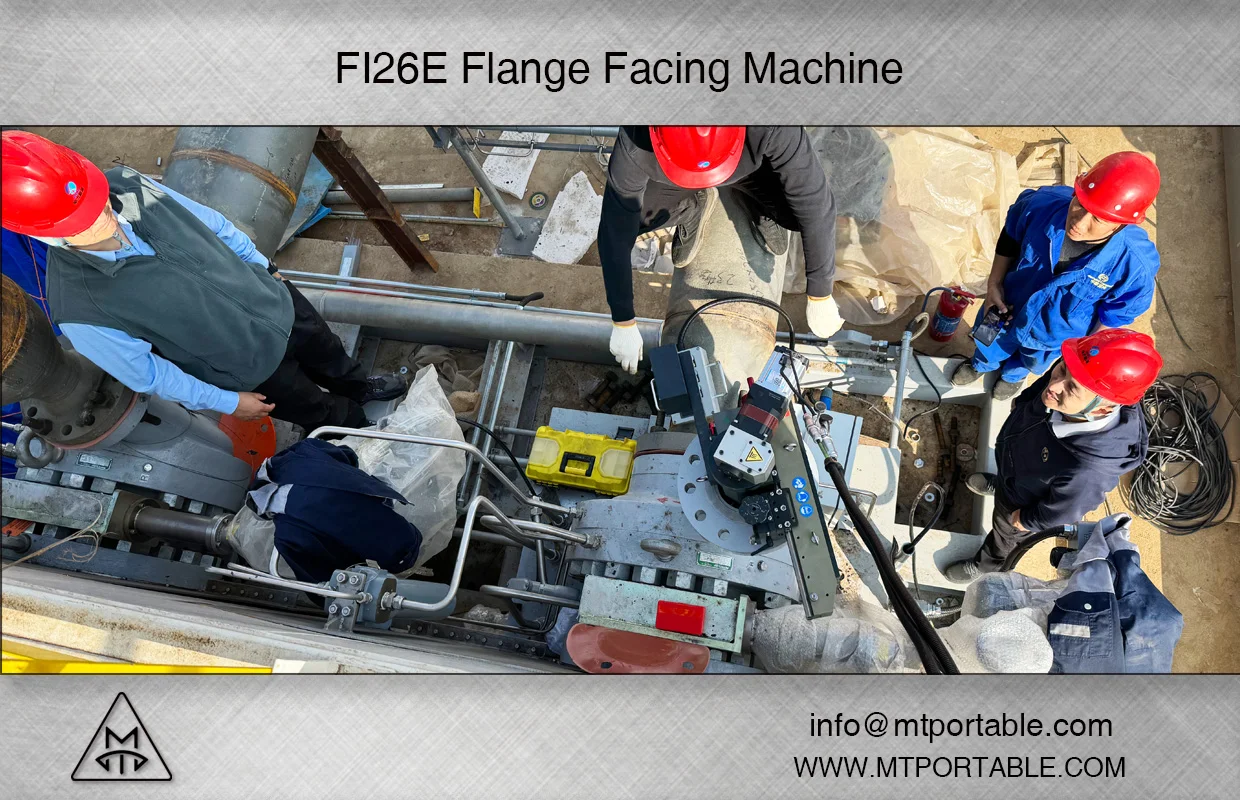Flange Facing Machine Enhances Chemical Plant Maintenance Efficiency
In the industrial world, particularly in chemical plants, timely and efficient flange repair is crucial for maintaining safety and operational reliability. Chemical plants typically schedule regular shutdowns for inspections and repairs—major shutdowns every four years and minor ones every two years. During these periods, maintenance teams face the significant challenge of repairing numerous corroded or rusted flanges within a limited timeframe. These repairs are critical for ensuring the plant’s continued operation.
In addition to scheduled maintenance, emergency repairs are also required if leaks occur during regular operations. These repairs are often time-sensitive and must be handled quickly, which puts added pressure on maintenance teams. The challenge is further compounded by the fact that many plants use a wide variety of flanges with the same specifications. As a result, preparation is key, and onsite machining teams must be fully equipped and ready to repair flanges efficiently during planned shutdowns or emergencies.
During one recent chemical plant shutdown, our customer’s onsite machining team sent us a photo taken from an overhead angle while using the FI26E flange facing machine. In the image, the inspection team is seen observing the machine’s performance, and their relaxed expressions show their satisfaction with the equipment. This successful operation underscored the importance of using the right tools, especially when dealing with the time-sensitive nature of flange repair in a chemical plant.
The FI26E and FI40E flange facing machines are widely used in the chemical industry for repairing flanges with diameters of up to 1 meter, which makes up about 90% of the flanges typically requiring repairs. The FI26E, in particular, is ideal for high-altitude work, especially for flanges with diameters under 700mm. When performing high-altitude repairs, the ease of handling the equipment is crucial. The FI26E’s lightweight design allows maintenance personnel to manually lift and position the machine, reducing safety risks associated with heavier equipment and improving repair efficiency.
Though the FI26E and FI40E flange facing machines have overlapping specifications, each serves its purpose in different situations. The FI26E is better suited for smaller diameters and high-altitude repairs, while the FI40E is designed for larger flanges. For most plants, purchasing both models is a standard practice to ensure they are prepared for all repair scenarios.
Preparation is a critical aspect of flange repair in chemical plants. Maintenance teams must anticipate the types and number of flanges that will require repair and ensure they have the appropriate equipment for the job. For example, during a typical shutdown, the team will ensure that their equipment inventory includes the FI26E and FI40E machines, ready for all sizes and types of flanges they need to work on. This preparedness helps minimize downtime and ensures that repairs are completed on time.
MT Portable Machine continues to provide advanced, portable flange facing machines that meet the demanding needs of industrial maintenance teams. Our equipment is designed to improve the efficiency and safety of flange repairs in chemical plants, ensuring that maintenance teams can carry out their work effectively within tight deadlines. For chemical plants looking for reliable flange facing machines for their next maintenance project, MT Portable Machine is here to help. Contact us at [email protected] for more information on the FI26E and FI40E machines, and how we can support your onsite machining needs.




